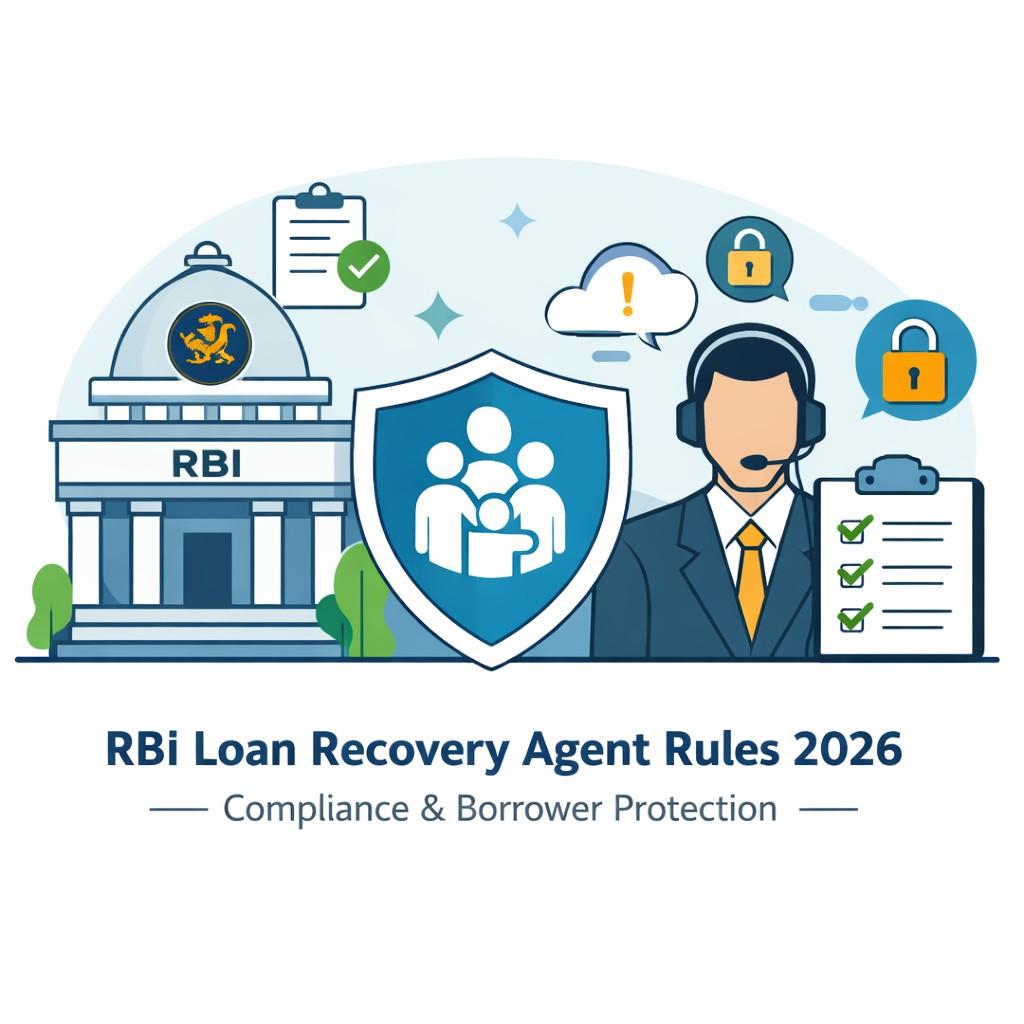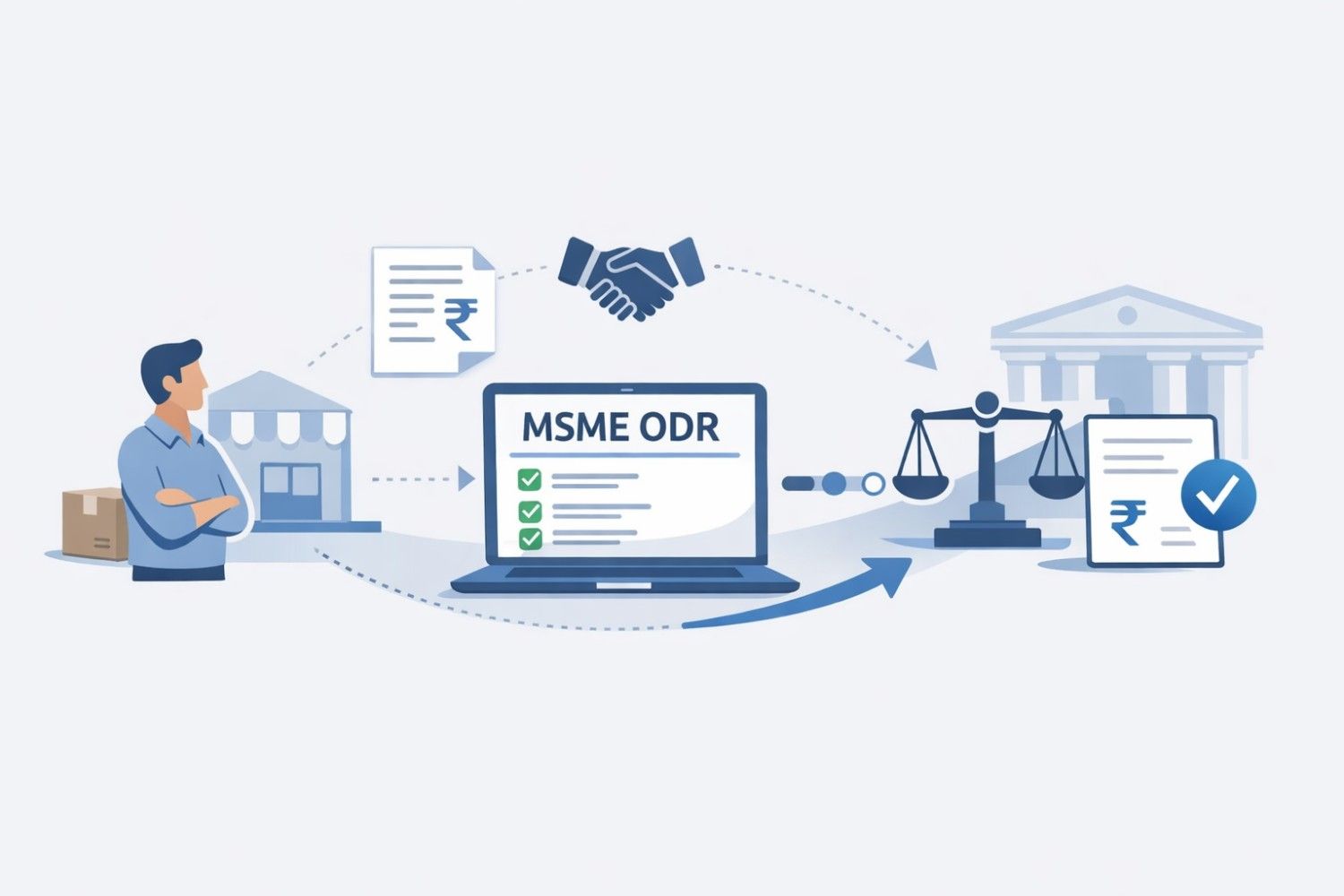Going Broke? Here’s How the IBC Process Can Help You Exit Gracefully
By the SolvLegal Team
Published on: Oct. 1, 2025, 3:55 p.m.

Let’s be real no one starts a business thinking it’ll shut down one day.
We all think big, rapid growth, going global, being the next billionaire startup. But alas, sooner or later, reality sets in. Markets crash. Customers disappear. Debts accumulate. And before you know it, your balance sheet goes from promising to scary. Now, here's the worst part- not the debt, but the absence of noise around the debt.
Most businesses in India sulk in silence. Entrepreneurs stay afloat, perhaps hoping they can ride the ship. But hoping isn't an actionable strategy. And when the end comes it can be messy, collections come, profits disappear, reputations collapse, employees lose faith, and sometimes, you even lose money out of your personal savings.
And what if I told you there's a better way to exit? A legal, timely, reputation-preserving way?
Welcome to IBC Liquidation. And no, it's not what you think.
Liquidation Is Not a Dirty Word (Not Anymore)
Liquidation is a scary word. It seems like the end. It feels like a label that says, "you failed." But what you're feeling is outdated thinking. Liquidation under the IBC 2016 is no longer just a chaotic event; "liquidation" is a structured legal process that will give you the opportunity to responsibly wind up your company, and the most important part with dignity.
Look at it this way:
If your business is a sinking ship, IBC is not a lifeboat. It is a pre-planned evacuation involving rescue helicopters, insurance claims, and a clean record for your next voyage.
The Dangerous Game of Waiting Too Long
Let’s stop and take a minute to recognize something we all know Indian founders LOVE to wait. And wait. And wait. No one wants to be the "bad guy.” But here’s the reality. Waiting diminishes the last drops of cash flow. Waiting destroys employee morale, and worst yet, waiting surrenders control of your business to creditors, courts and chaos.
If you act sooner rather than later (before it collapses), you influence the process. You can voluntarily wind up the business. You can appoint a professional. You can protect your name. Yes, you’re in control, but only when you take action before it’s too late.
So, What Is IBC Liquidation Really?
So, what does IBC Liquidation look like? Let's simplify it without the legal jargon. The IBC liquidation process looks like this:
If you are a company in financial distress, the resolution process hasn't worked, or you are a solvent company and have voluntarily decided to close your doors, you file an application in the NCLT (National Company Law Tribunal). The NCLT appoints a liquidator and the process begins. The Resolution Professional (RP) assigned to oversee the bankruptcy resolution procedure is typically also hired to carry out the liquidation process under IBC. The eligibility requirements for an insolvency practitioner to be appointed as a liquidator are listed in Regulation 3 of the Liquidation Regulations. Now, the position of a liquidator is not a bad thing. They do not come in with locks and court orders.
A liquidator will, legally, take over the assets of the company, accept proof of claim from creditors, sell the assets of the company, pay the dues to creditors in an orderly, equitable basis, and finally, take steps to dissolve the company.
It is no different than a professional clean-up of everything you have worked hard on and achieved, with rules, times, and transparency.
The 12-Month Lifeline
One of the strongest aspects of an liquidation under IBC is its strict time framework that provides for a twelve-month time frame as per the Regulation 47 of the Liquidation Regulations . The time doesn't extend to years, you're not stuck in court indefinitely, and you're also not stuck "in process." If done right, this means you: Close clean, you avoid asset values eroding further and you leave your ability for future opportunity open because, spoiler alert: the world doesn't collapse under your feet when the business winds down.
A lot of great founders failed once. Or multiple times. But they exited clean and that's a big deal. Propose Debt Restructuring to Committee of Creditors. Use the Resolution Plan to - Ask for interest waiver or deferral, propose instalment-based repayments, request conversion of debt into preference shares or equity, offer performancebased returns to creditors in the future.
But What If I Disagree With the Liquidator?
Let’s assume the liquidator denies your claim. Or mishandles an asset. Or you feel as a director or stakeholder that something is wrong. You are not without power. You (under Section 42 of the IBC) can appeal (must appeal) within 14 days of receipt of such decision. So, you’re protected; your rights acknowledged, and you have a remedy rather than simply accepting.
Legal Help Isn’t Optional—It’s Non-Negotiable
Yes, it may seem big and expensive but the bottom line is, you cannot afford to get it wrong. The IBC liquidation process involves several tribunal filings, a strict order of priority of payment obligations, a prescribed way of valuing the assets, complex negotiations with creditors, and strict documentation. It's not just paper work; it's a closely regulated legal process. Any small error even a missed filing date or an incorrectly filed claim could result in the rejection of your application, a fine and penalties or worse. This is why trying to do it on your own could be risky. You should consider engaging a legal expert who understands the IBC process. Not only will they help you make it a smooth process; they will help you stay in control to minimize mistakes, costing you money and protecting the value and reputations as much as possible.
Voluntary Liquidation: A Bold but Brilliant Move
Let's debunk one final myth. Liquidation is not always the result of a disaster. There are a number of startups that have voluntarily shut down to-; Pivot to a new model, exit gracefully, without litigation, terminate a project that is clearly not part of their vision. Voluntary liquidation is a tool used by smart entrepreneurs, not an indicator of failure. You don't need to crash and burn. You can exit gracefully and think through your next step whilst protecting your brand.
Founder Protection Strategies During Liquidation
Liquidation doesn’t mean you give up everything. Here are ways a founder can protect themselves during the process:
1. Keep Good Records
Make sure you know the history of all your statutory records (financial statements, meeting minutes, asset registers, etc.) and they are all up-to-date. Clean books = clean closure.
2. Separate Personal Guarantees from Business Liabilities
One of the biggest mistakes founders make is mixing personal guarantees into their business liabilities. Generally speaking, where it's possible, don't have a personal guarantee on loans, don't pledge your own property against company assets. In liquidation, be sure to note that the liabilities are the company's, not yours!
3. Get a Lawyer Involved Early
The earlier you can approach a lawyer experienced with IBC, the better the protection. A good lawyer will help you with- structuring your voluntary exits, comply with notices from the liquidator, filing any objections or claims, assisting in negotiating with creditors for settlements.
4. Understand the Waterfall
The IBC provides a waterfall mechanism to determine who gets paid during liquidation, and these are Insolvency costs, Secured creditors, workmen dues, employees, unsecured creditors, government dues, shareholders/promoters. If you understand where your creditors lie in this list you can have proper expectations.
Ready to Exit Smart or Safeguard Your Business? SolvLegal Has Your Back.
Stop acting like liquidation is a funeral. It's a business decision. A legal right. And in many cases, the only way to protect your future. The IBC has converted a painful, challenging process into a system of timelines, transparency and fairness. You don't lose your identity as an entrepreneur because you close a company. You lose it when you disregard your options and let things ruin themselves so if you're hopelessly in debt. Don't let it get down to nothing. Don't worry about being judged. And please don't go quietly.
Navigating liquidation under the Insolvency and Bankruptcy Code (IBC) can feel overwhelming but you don’t have to do it alone.
SolvLegal is a modern legal-tech platform designed to simplify and streamline complex legal processes like IBC liquidation for businesses across India. Whether you’re a founder dealing with financial distress, or a company planning a voluntary wind-up, we provide the legal clarity, strategic support, and compliance expertise you need to exit smartly.
Here’s how SolvLegal can assist you in IBC matters:
● End-to-end guidance in liquidation proceedings- From NCLT filings to managing liquidator interactions.
● IBC-compliant documentation and legal strategy– Avoid mistakes, delays, or penalties
● Connect with verified insolvency professionals and legal experts– Get the right representation.
● Clarity on your role, risks, and protections as a founder or stakeholder.
ABOUT THE AUTHOR
This blog is authored by Shridansh Tripathi, a second-year law student at the Department of Legal Studies and Research, Barkatullah University, Bhopal.
REVIEWED BY
This article was reviewed by Prakhar Rai, a seasoned corporate lawyer. He advises extensively on intellectual property, contracts, mergers and acquisitions, and private equity and venture capital. His work also includes data protection and privacy, regulatory and compliance advisory, white-collar crime, technology and startup law, and commercial dispute resolution.
DISCLAIMER
The information provided in this article is for general educational purposes and does not constitute legal advice. Readers are encouraged to seek professional counsel before acting on any information herein. SolvLegal and the author disclaims any liability arising from reliance on this content.





